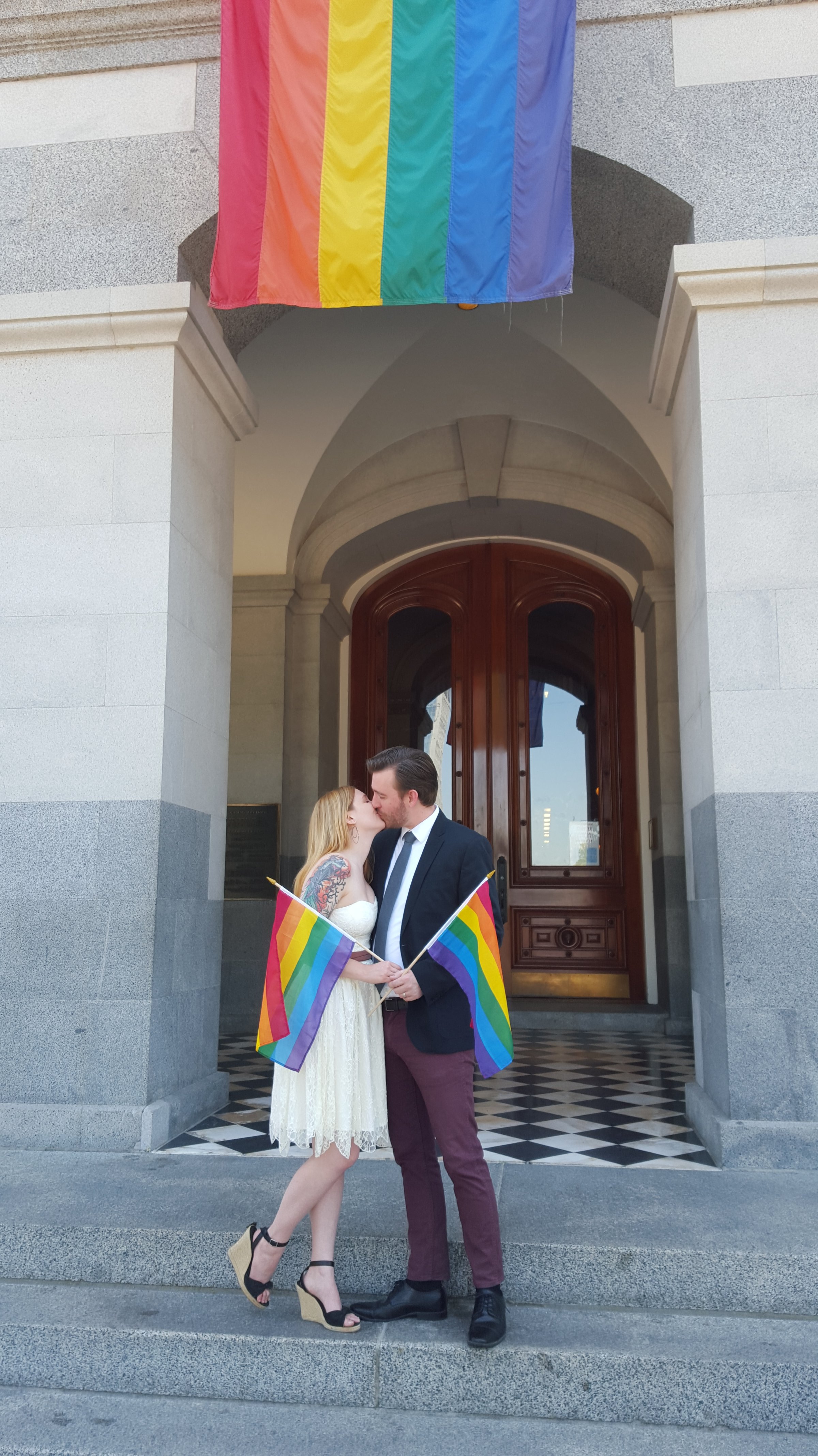
Last Friday in Sacramento, Calif., Roxy Davis, 29, was scrolling through her Twitter feed when she saw the news that the U.S. Supreme Court had ruled that all 50 states had to recognize same-sex marriages. As tears streamed down her face, she woke her partner of seven-and-a-half years, 29-year-old law student Jordan Davis, and screamed “Let’s go get married!” After “boycotting marriage” for six years, the heterosexual couple went to a flag store, bought rainbow flags, and told loved ones to join them for a “celebration of marriage equality” at the County Clerk/Recorder office, where they were married in a civil ceremony.
Likewise, in Portland, Oregon, Zoe Zachariades and her partner of seven years, Boris Kaidanov, both 28, got text messages from their moms asking if they were going to get married. Zachariades says she texted back “yes, then I looked at Boris, and asked, ‘Oh, are we?’ He said yes, and we hugged.” The two, who have a five-month-old baby, haven’t set a date yet.
These are just a few of the straight couples who have been waiting to get married until same-sex marriages were recognized as legal nationwide. Likeminded couples made headlines for getting married in 2013, after the Supreme Court both struck down the Defense of Marriage Act (DOMA) and cleared the way for same-sex marriages to resume in California. But many also pledged not to wed until there was marriage equality in their states.
Even that wasn’t enough for Zachariades and Kaidanov. A federal judge ruled Oregon’s ban on same-sex marriage unconstitutional last May, but the pair still held out. “We would do it when everyone in our country could do it,” Zachariades explains. She said their decision was influenced by college classes that taught them about “gay rights as human rights, and we wanted to be part of change.”
Zachariades and Kaidanov wanted to “bring more awareness to our friends and family” about the issue, as did Jordan Davis, who says, “I was boycotting marriage because I have family members who would say we don’t need marriage equality. They thought [the gay marriage debate] was someone else’s problem, so I was trying to make it their problem, too.”
Straight celebrities have also generated mainstream attention for this unusual cause. Actress Kristen Bell, who pledged not to get married until her gay and lesbian friends could marry, popped the question to actor Dax Shepard in a tweet on Jun 26, 2013 after the Supreme Court struck down DOMA. Likewise, there were rumors that the court’s decision may have inspired Brad Pitt and Angelina Jolie to tie the knot, after Pitt famously said in 2006 that they’d only do it “when everyone else in the country who wants to be married is legally able.” When they wed secretly in August 2014, it was seen as a sign that they thought same-sex marriage was allowed in enough states.
And most recently, Girls creator Lena Dunham told Ellen DeGeneres that she and her boyfriend, musician Jack Antonoff, would not get hitched until gay marriage was recognized in all 50 states. After the Supreme Court handed down that decision last Friday, she tweeted “.@jackantonoff Get on it, yo…”
There are also straight couples who have used their weddings to advocate for marriage equality, either by incorporating lines from court decisions on same-sex marriage into readings at their ceremonies, or asking guests to sign petitions supporting marriage equality, or by wearing lapel pins with a white-knot, a symbol of the movement.
As a “show of solidarity for our gay friends and family members,” Tony Curtis, 35, and Beth Moore, 33, of Louisville, Kentucky, had been planning a commitment ceremony at the LGBT-friendly Douglass Boulevard Christian Church — where, up until last Friday, ministers had refused to sign marriage licenses for straight couples until same-sex couples could get married statewide. (The Supreme Court case decided last Friday involved plaintiffs from Kentucky.) The couple was then going to drive to either Iowa or Indiana to get their marriage license signed because Moore, a behavioral analyst, said she didn’t want to get her marriage license signed in a state where same-sex and heterosexual marriages were not viewed equally under the law because she was frustrated by the way her relatives referred to her mom’s cousin and his husband as “roommates” at family reunions.
“I realized that if we had children, I wouldn’t want my children to think that their marriage was any less official or less important than other marriages or other relationships,” says Moore. Engaged since August 2014, the two now plan to marry in Louisville on July 18 and have the Douglass Boulevard Christian Church sign their marriage license.
But for some it was hard to find a partner willing to wait as a matter of principle. Mary Lunetta, a 33-year-old policy analyst in San Diego, (who was first quoted on this topic in the 2006 New York Times article “The Sit-In at the Altar: No ‘I Do’ Till Gays Can Do It, Too”) says her aunt came out as a lesbian at the same time that she got engaged. After talking with her fiancé, who also had gay family members, they agreed to wait. “How could I get married if my aunt couldn’t do that? It just didn’t seem right,” she told TIME. “I wouldn’t want to claim something for myself that was denied to people I love.” They ended up breaking off their engagement after she moved to take a new job.
Since then, she hasn’t met a guy who completely shares her views. She says she broke up with her boyfriend of two-and-a-half years about a month ago because “he wanted to get married, and he was supportive of marriage equality, but he didn’t understand my hesitation to do it until everyone in the country had that right. He’s not the only one who didn’t get the desire to wait. In discussions about this topic online, some critics argue these statements are akin to “not eating until there are no starving people in the world anymore.”
After last Friday’s Supreme Court ruling, Lunetta says she is definitely open to getting married when she finds the right person. “Now that we can stop talking about who should and should not be allowed marry, we should talk about how to commit ourselves to a true, loving partnership,” she says. “I’m a millennial, and a lot of millennials are the kids of divorced parents, so we don’t know how to do the good, solid, loving partnerships thing.”
That comment may especially resonate among the share of American adults who have never married, which is at a “record-high,” according to a Sep. 2014 Pew Research report. “We felt committed enough to one another that we didn’t need a piece of paper anyway,” Zachariades put it simply. Also, some of the straight couples TIME interviewed haven’t felt pressured to get married because they work for companies that recognize domestic partnerships which allows them to get health insurance for their partners.
Still, marriage is tempting because of the government and tax benefits it offers. Fawn Livingston-Gray, 42, and Sam Livingston-Gray, 40, were featured in the 2006 New York Times article as a couple that weren’t going to marry till there was marriage quality, while they did wear “matching white-gold rings engraved with Celtic designs.”
Now, nine years later, the Portland, Ore. couple have a six-year-old daughter, and the decision is as much about practicalities as principle. Fawn, a volunteer coordinator at a women’s crisis hotline who identifies as bisexual, says they’re still considering marriage because of the “protections for our kid and access to things like Social Security when we’re older, and it would probably save us money to file tax returns jointly.”
See Gay Pride Parades from Around the World
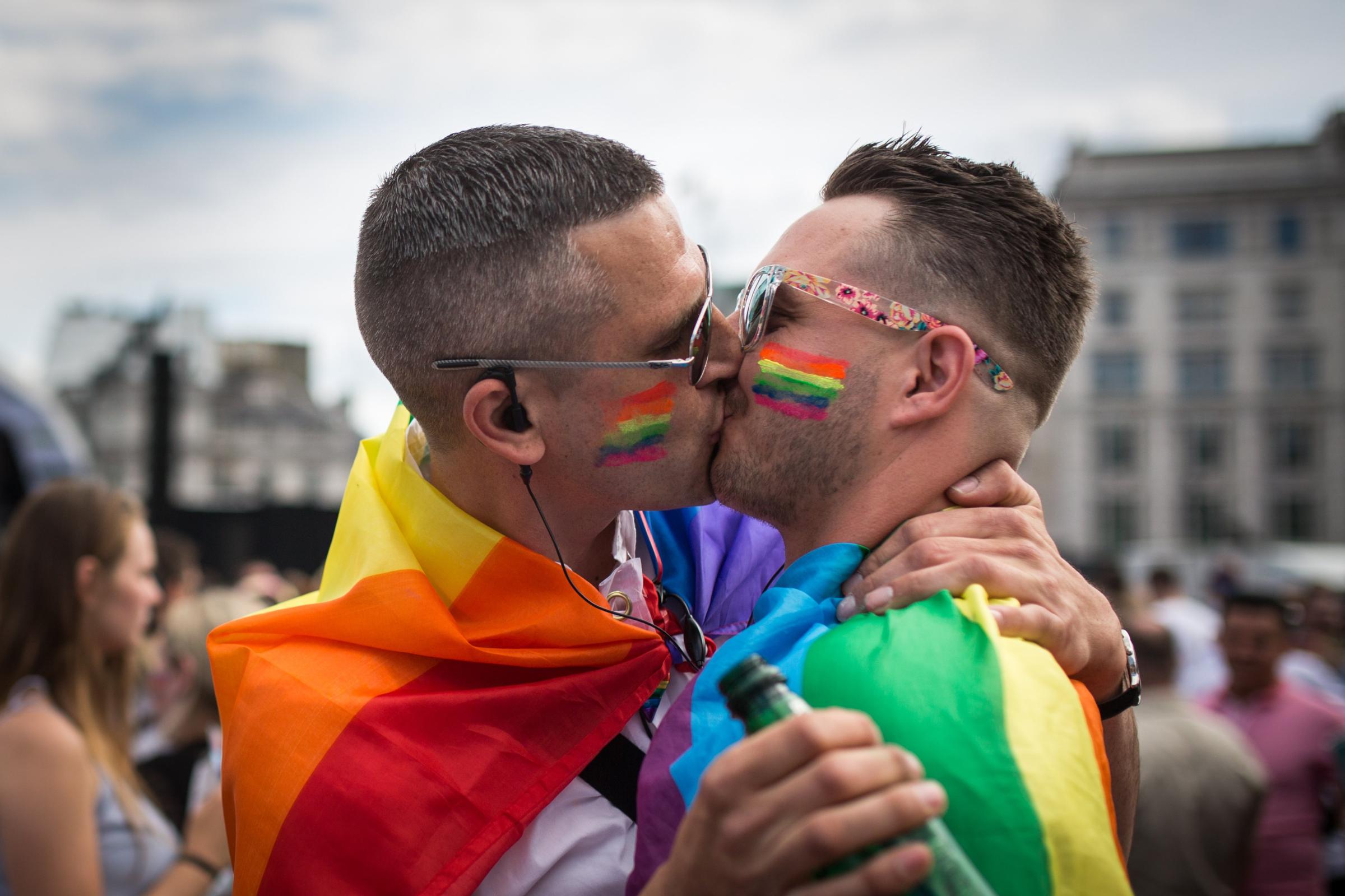
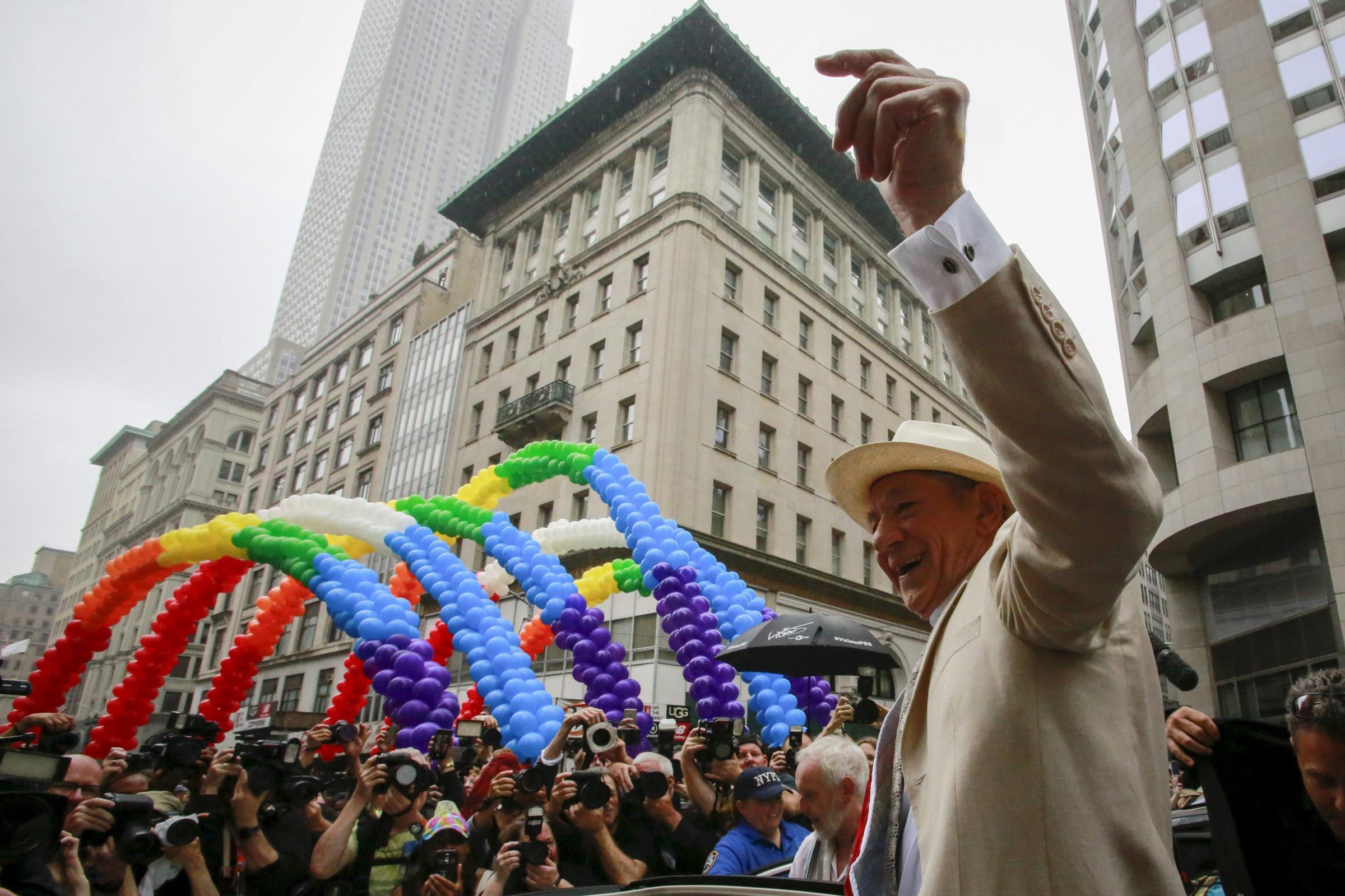
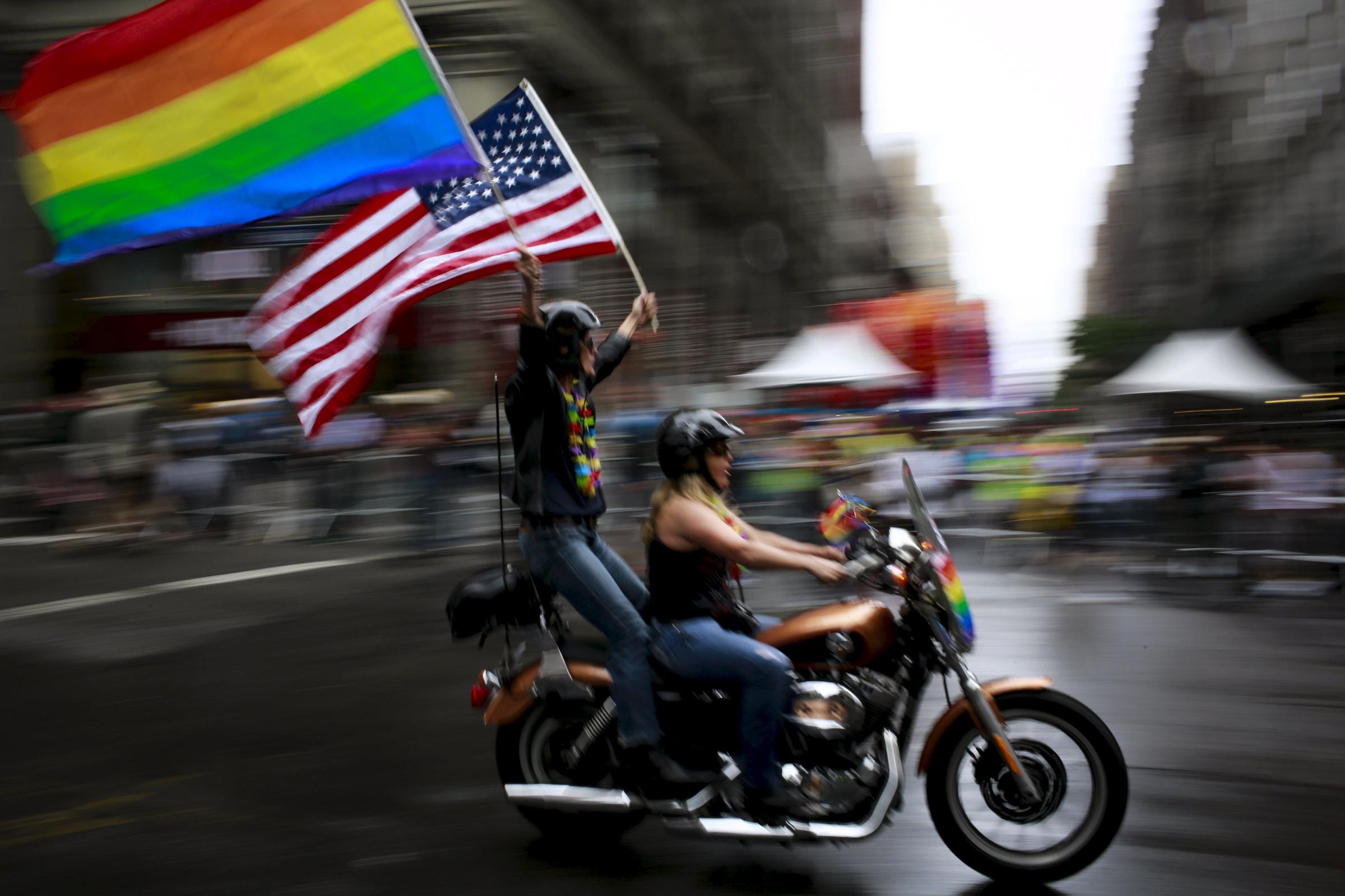
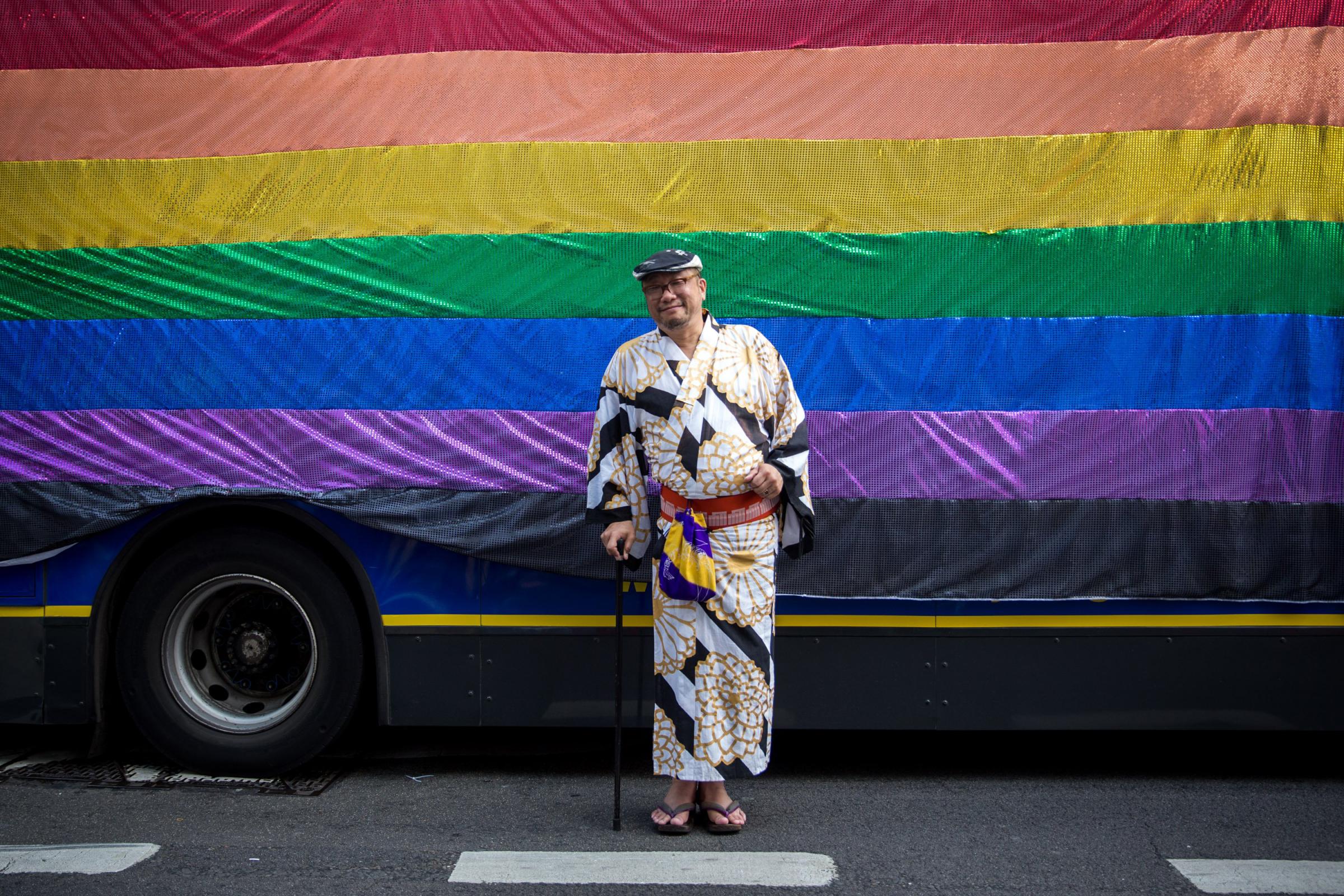
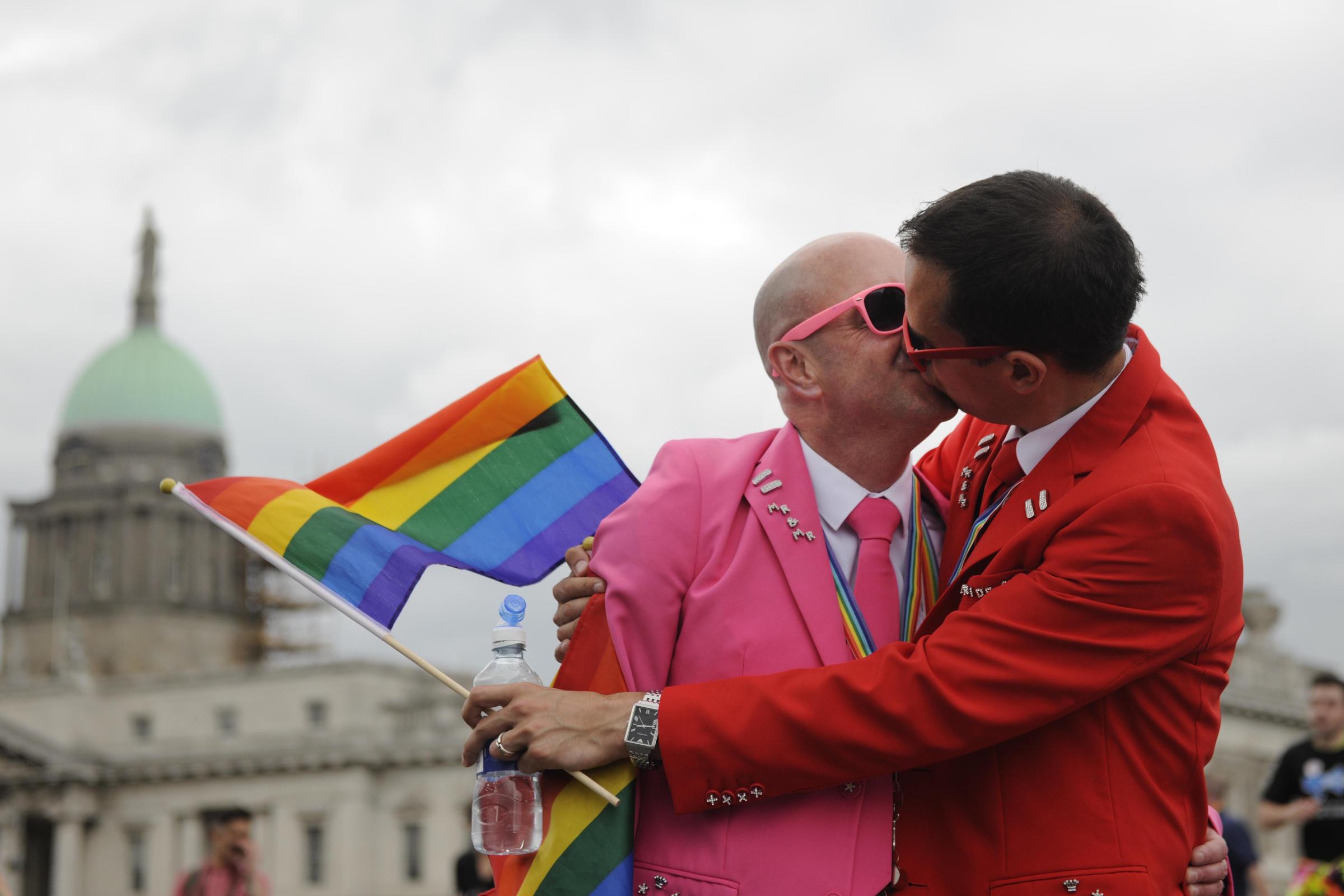
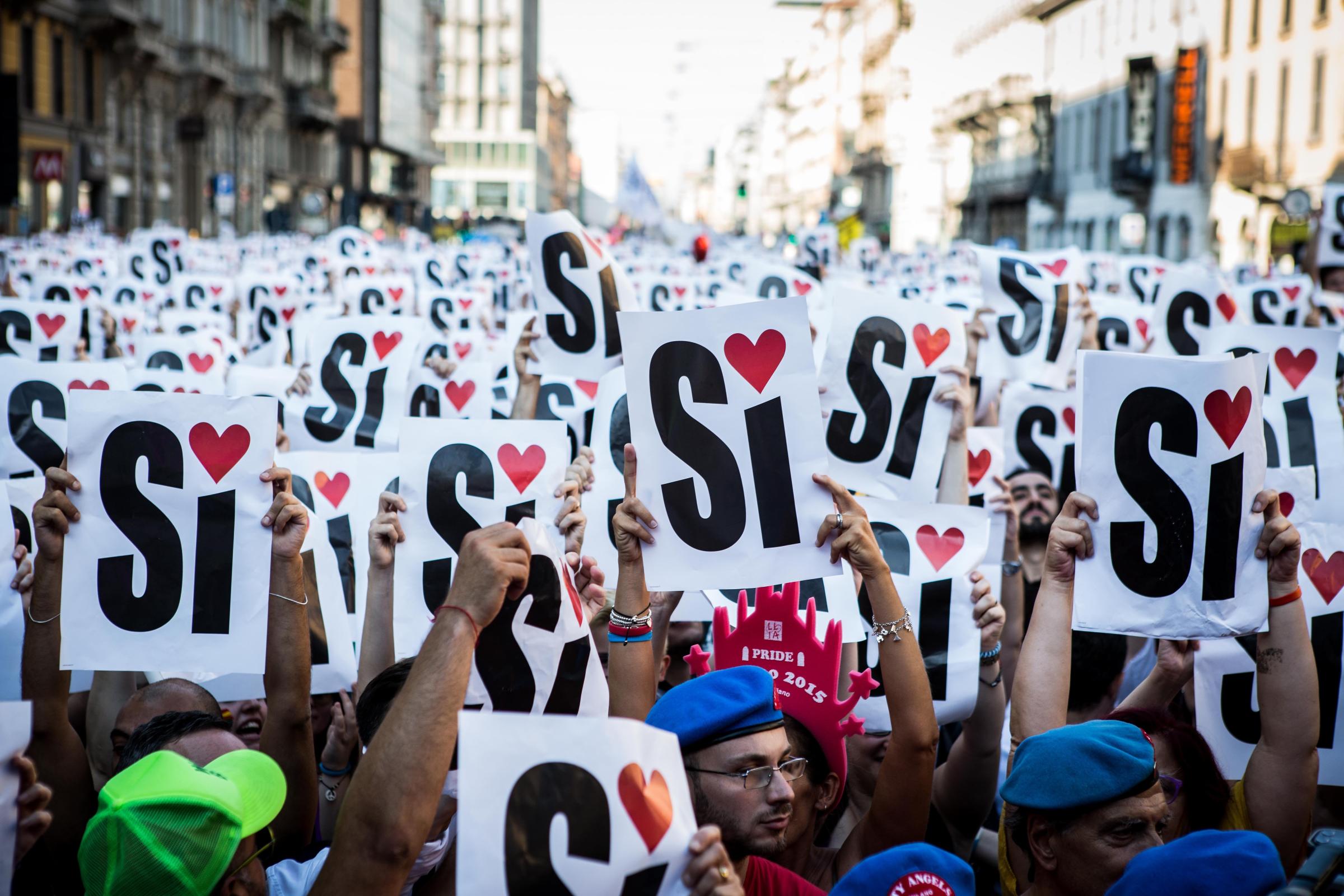
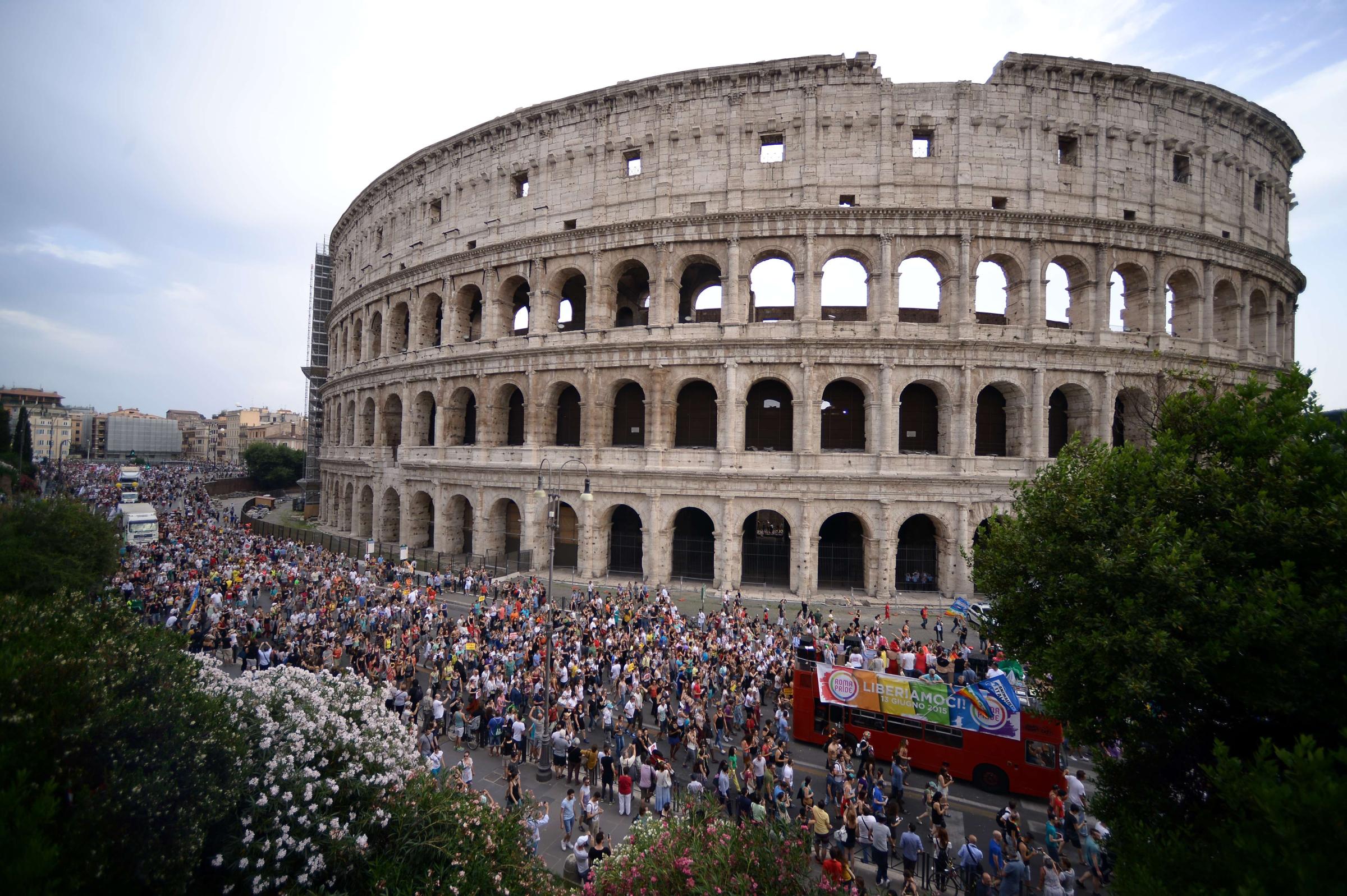
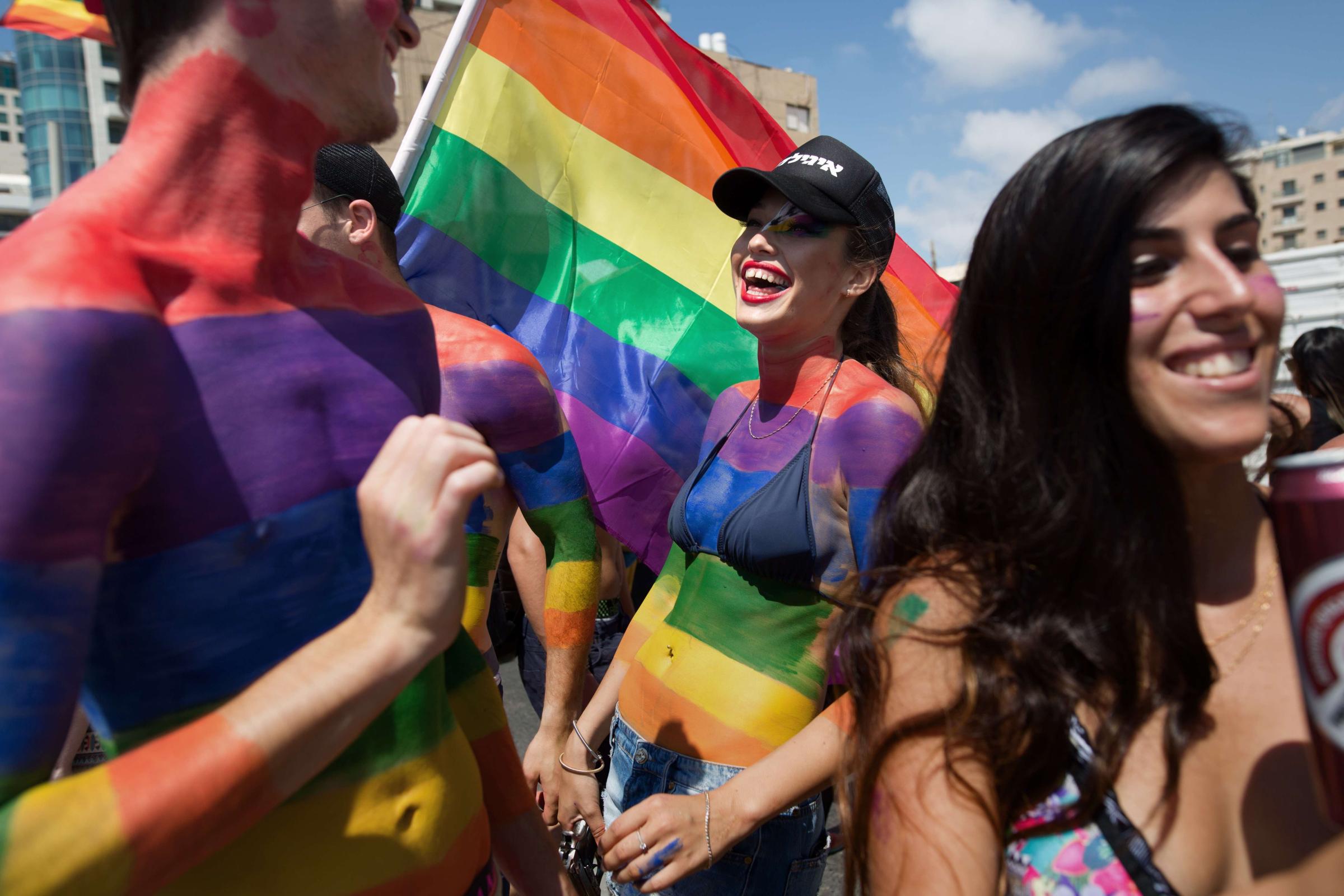
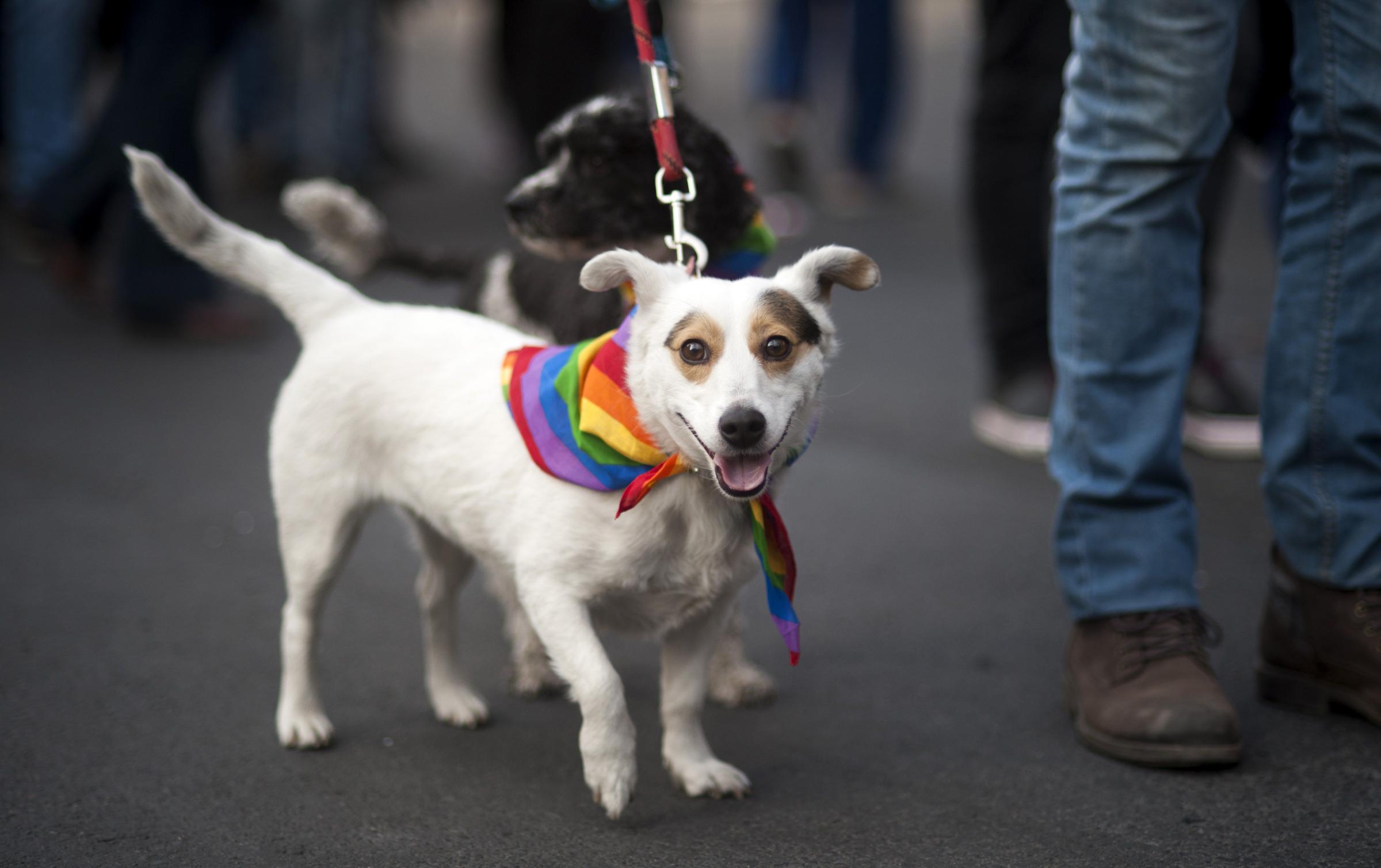
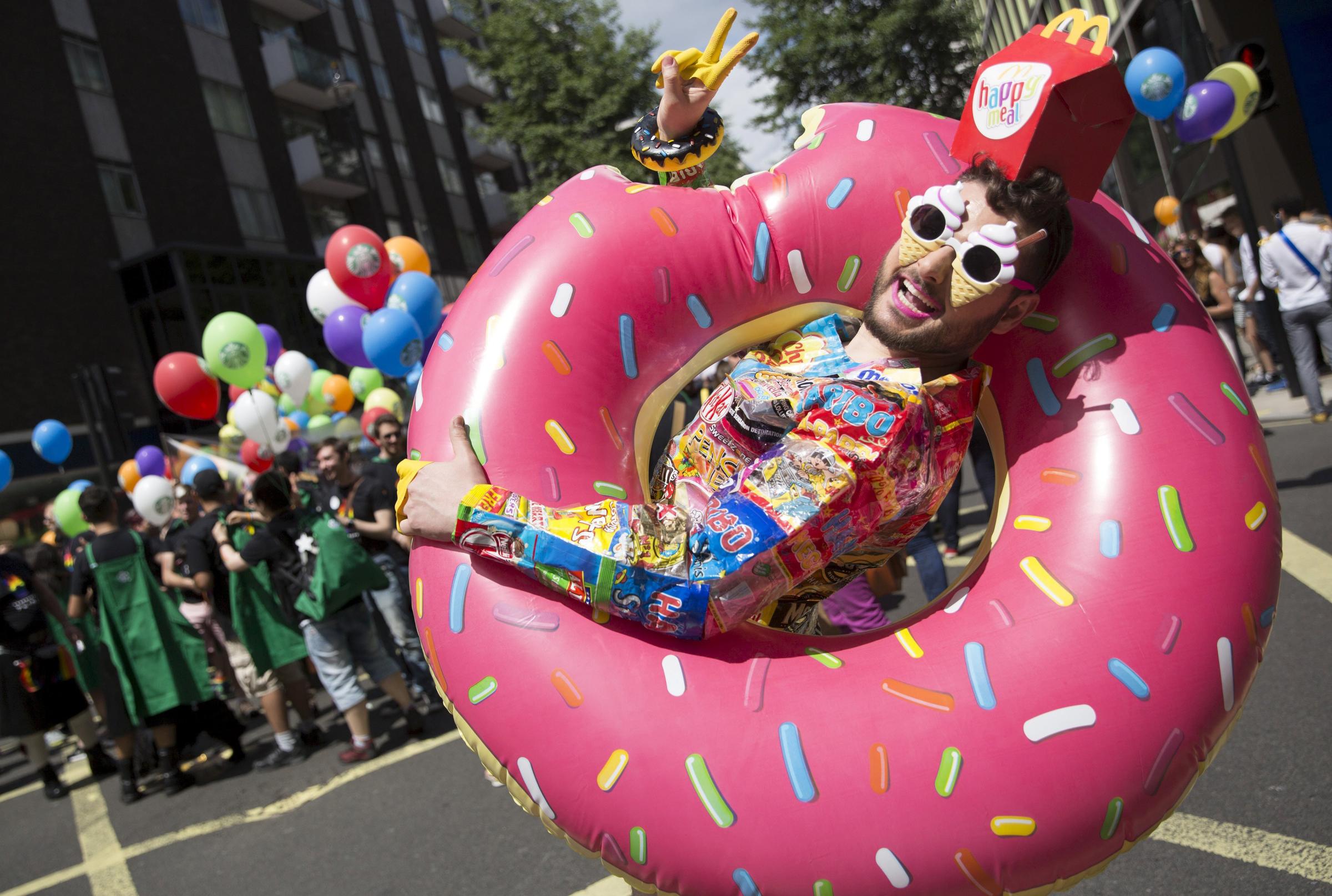
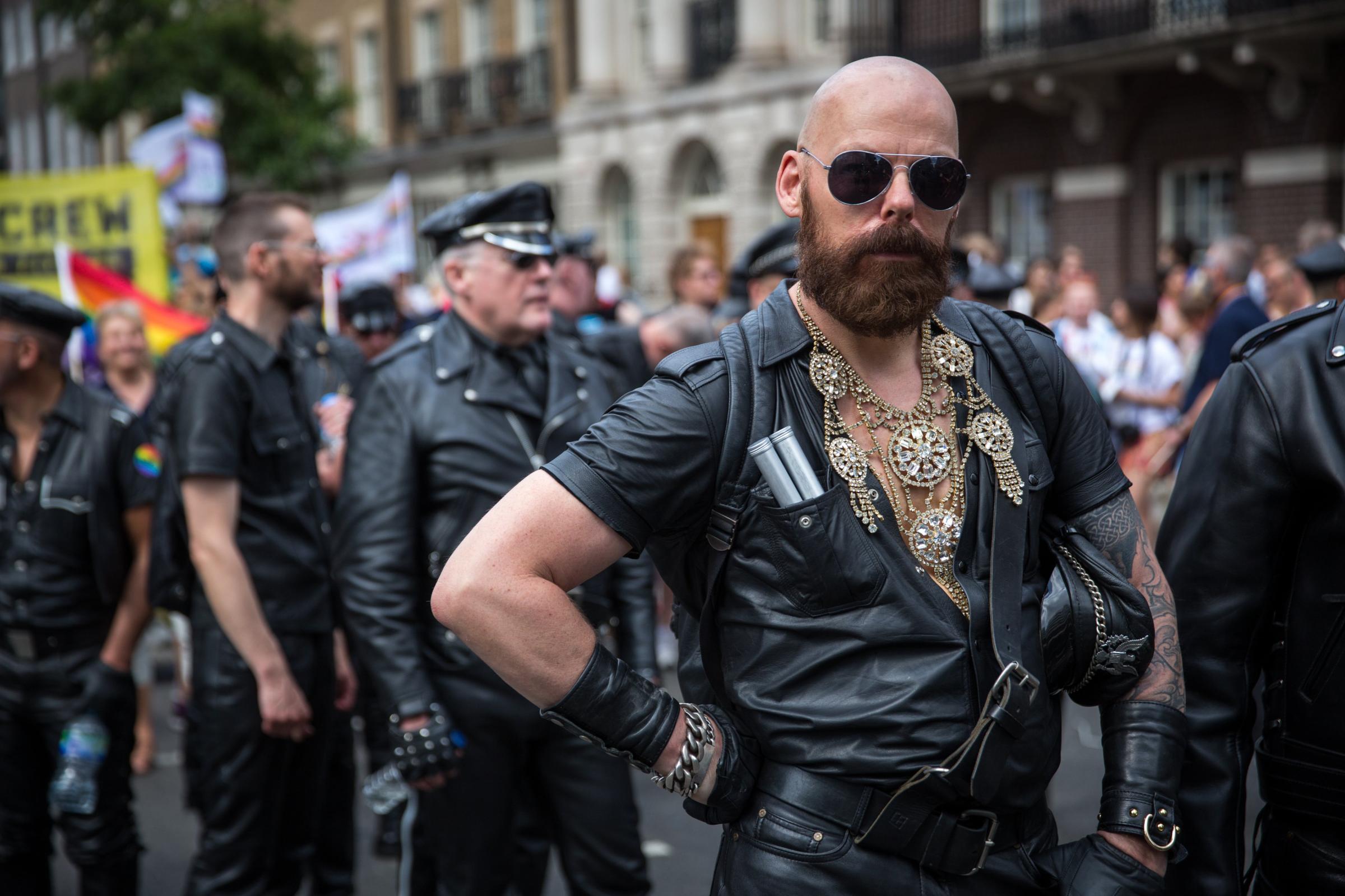
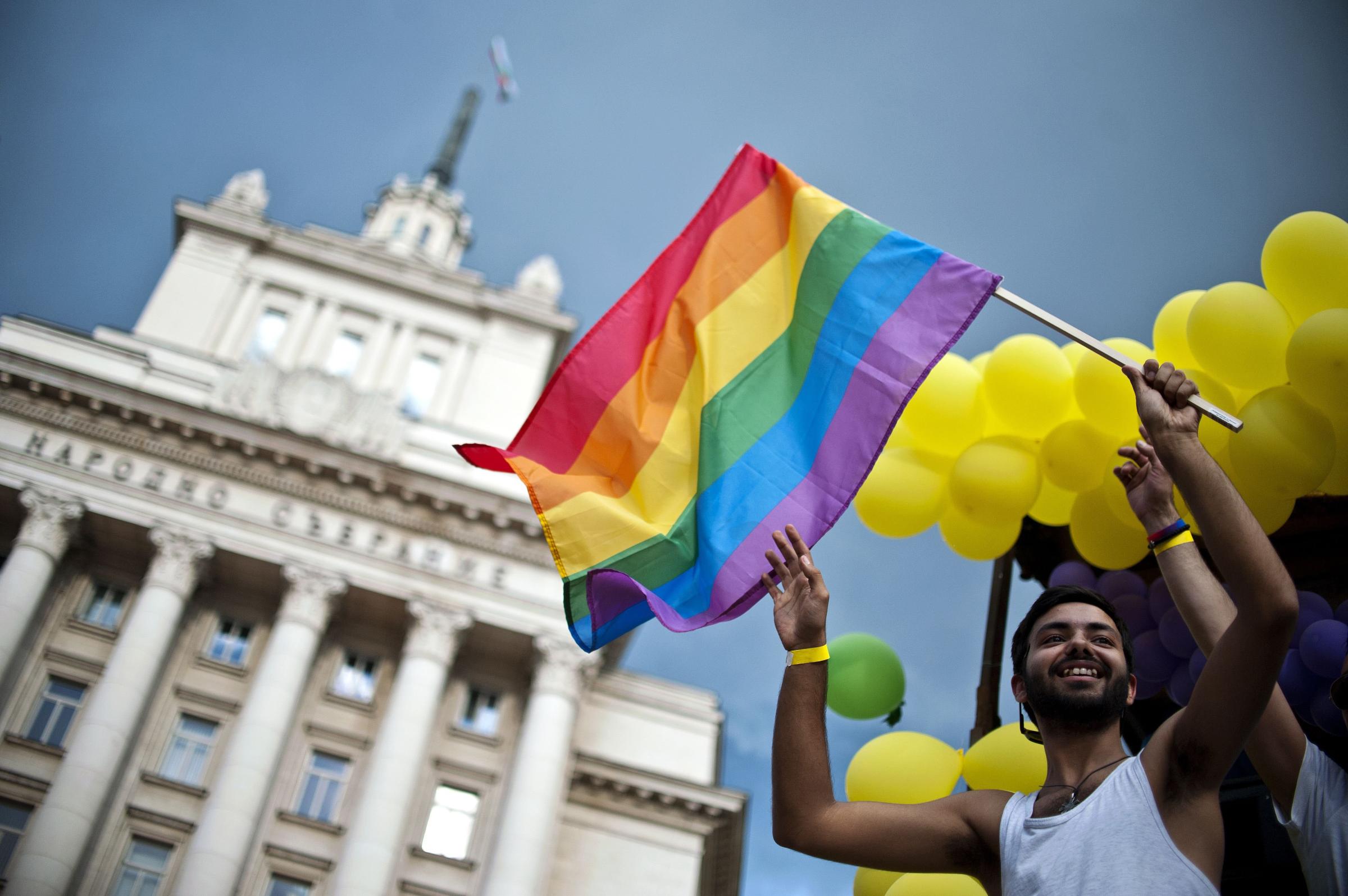
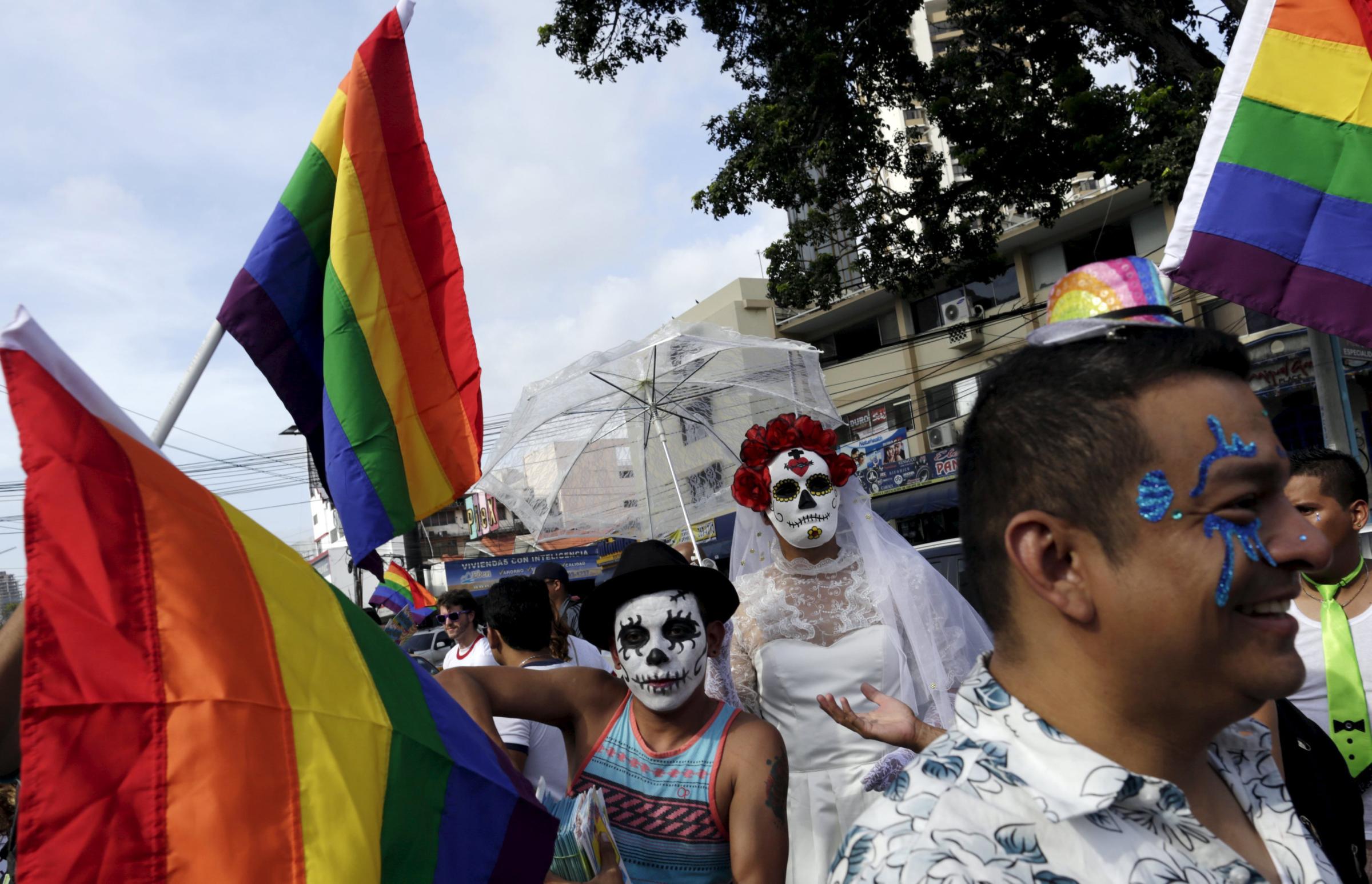
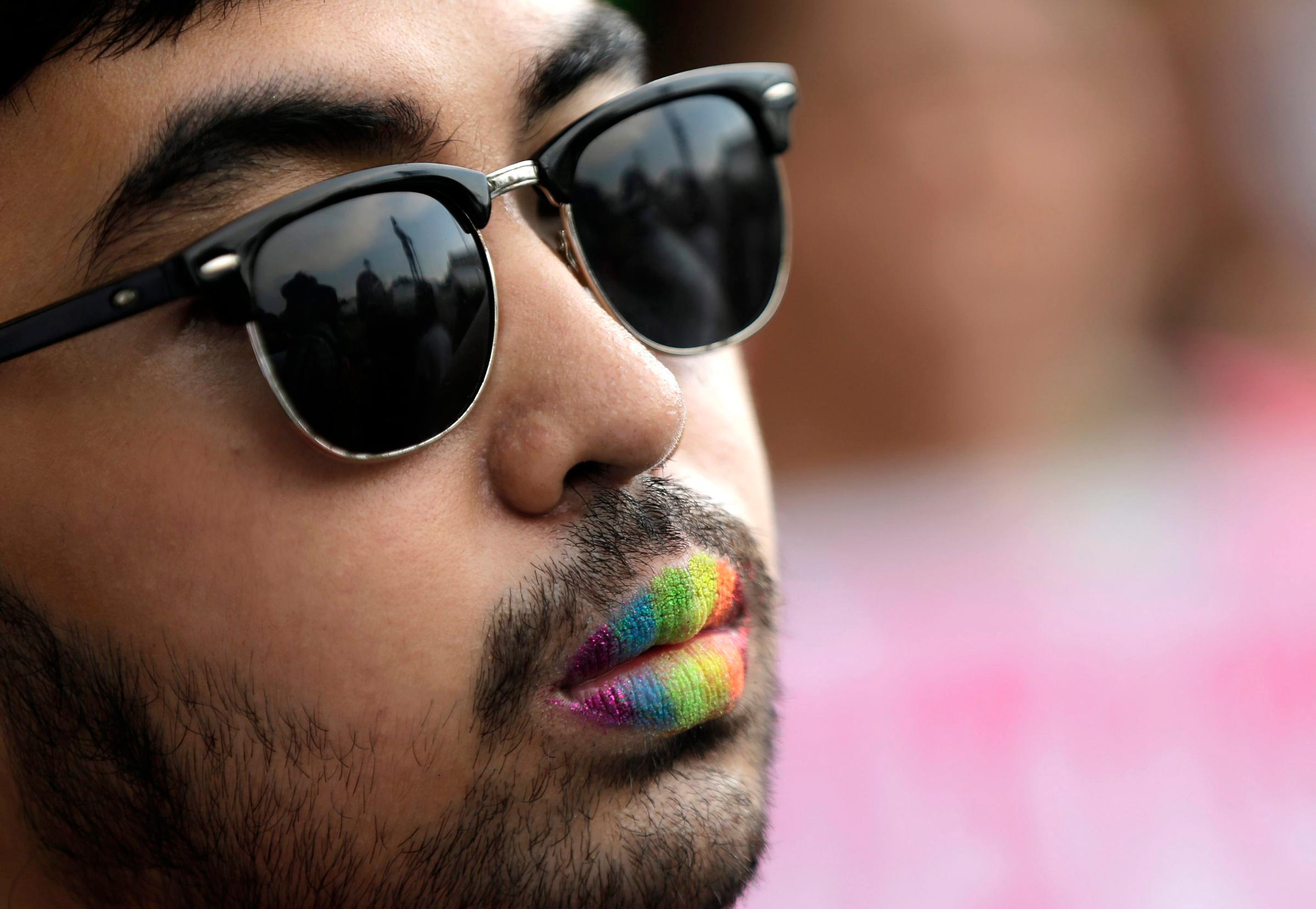
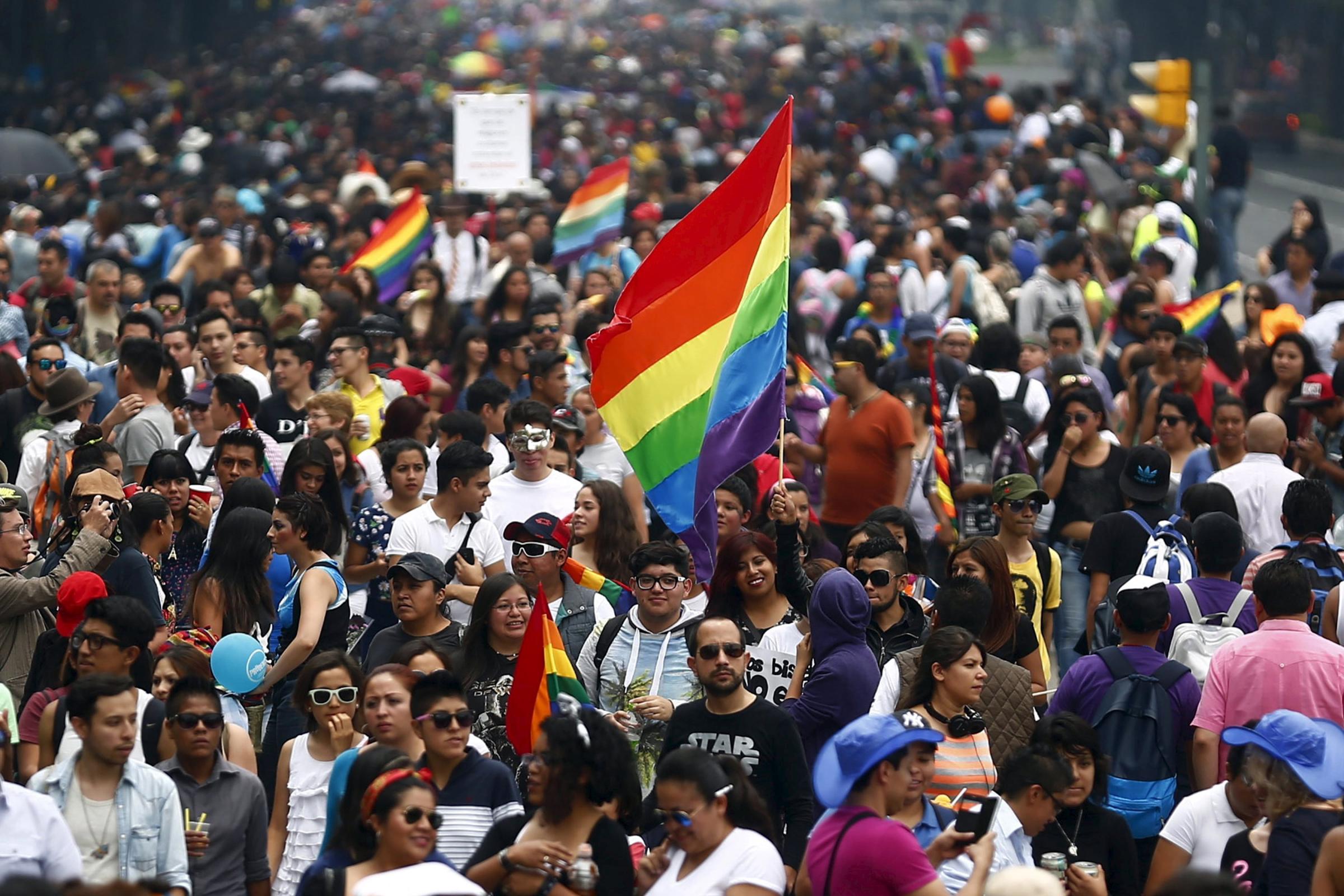
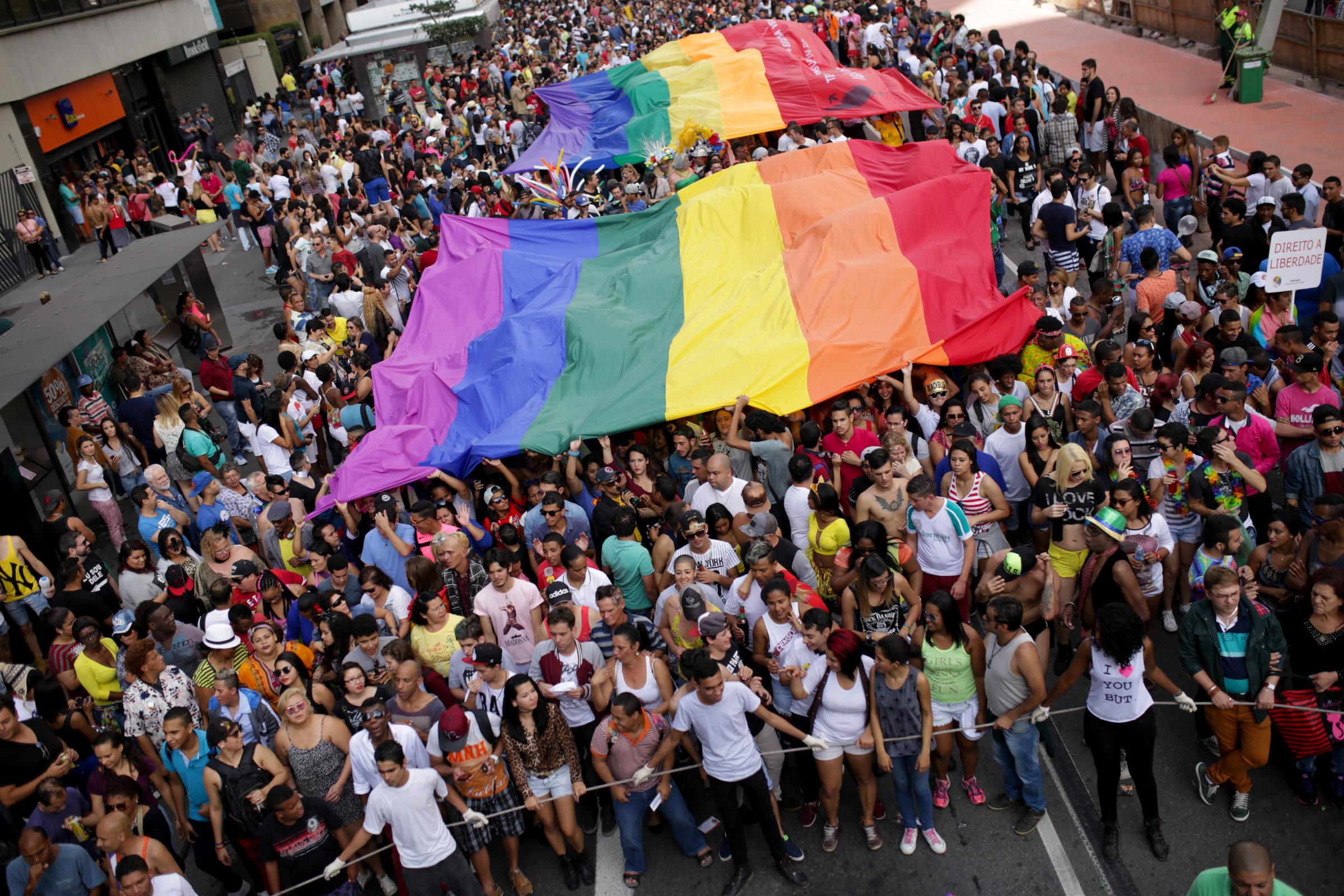
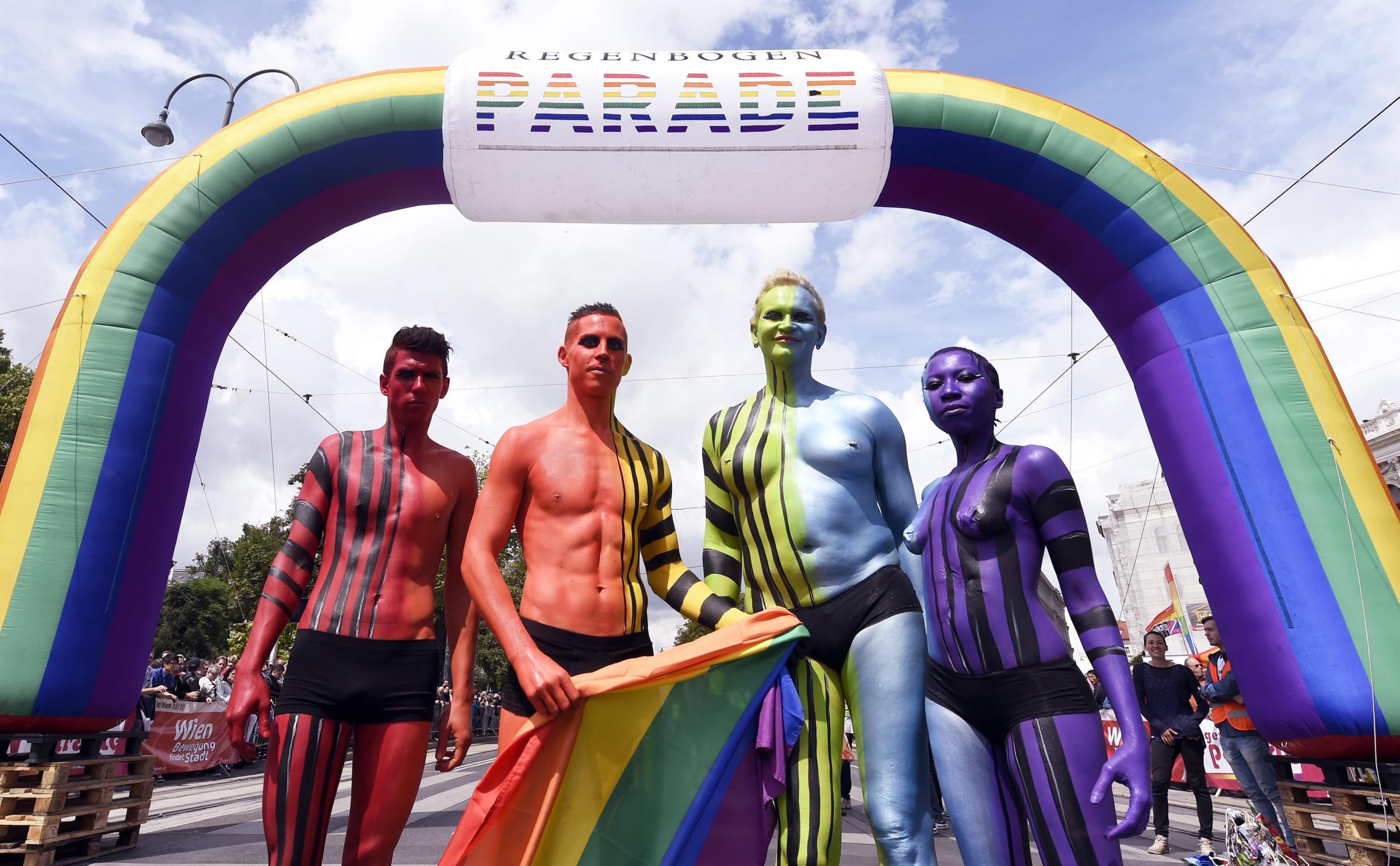
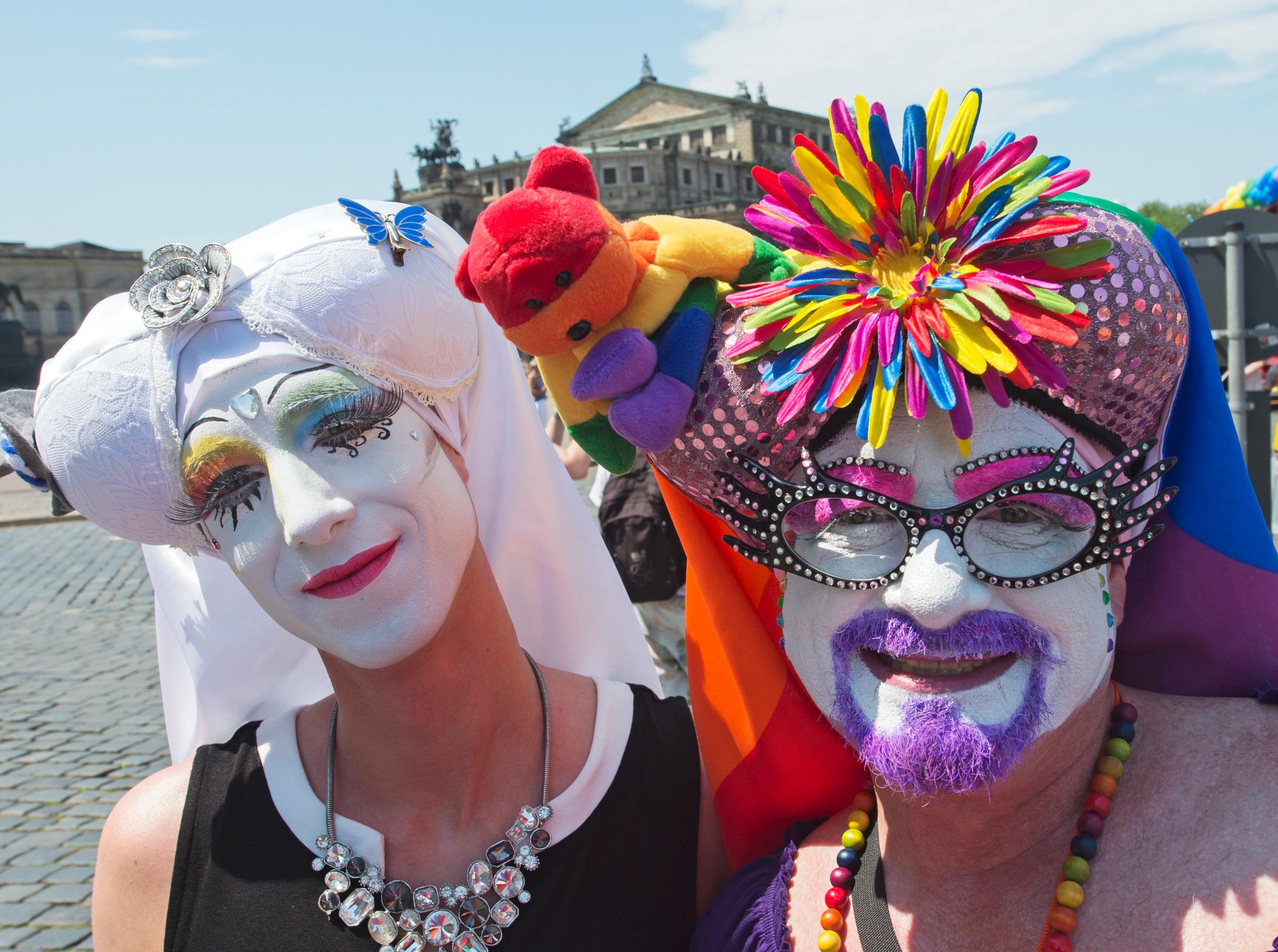
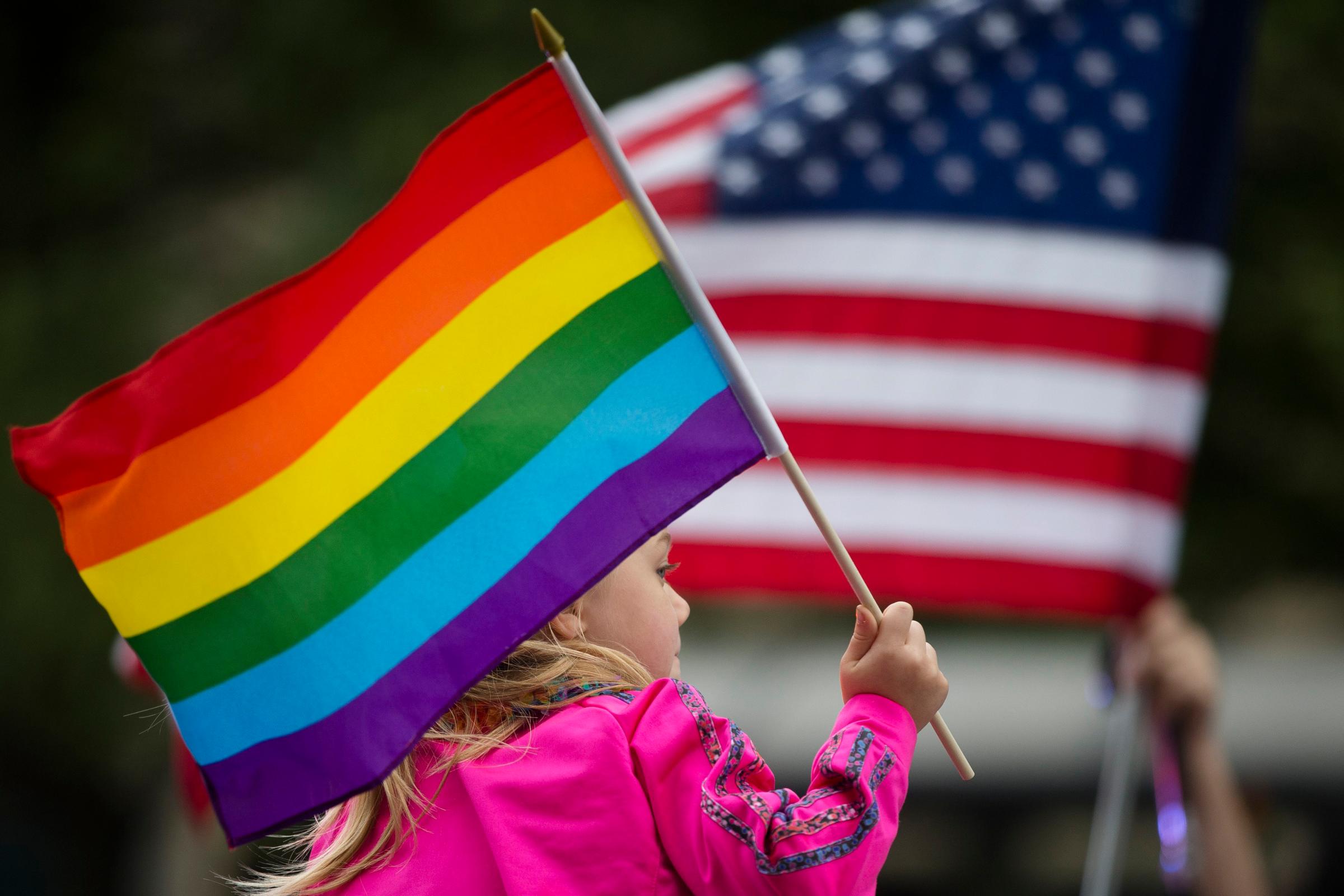
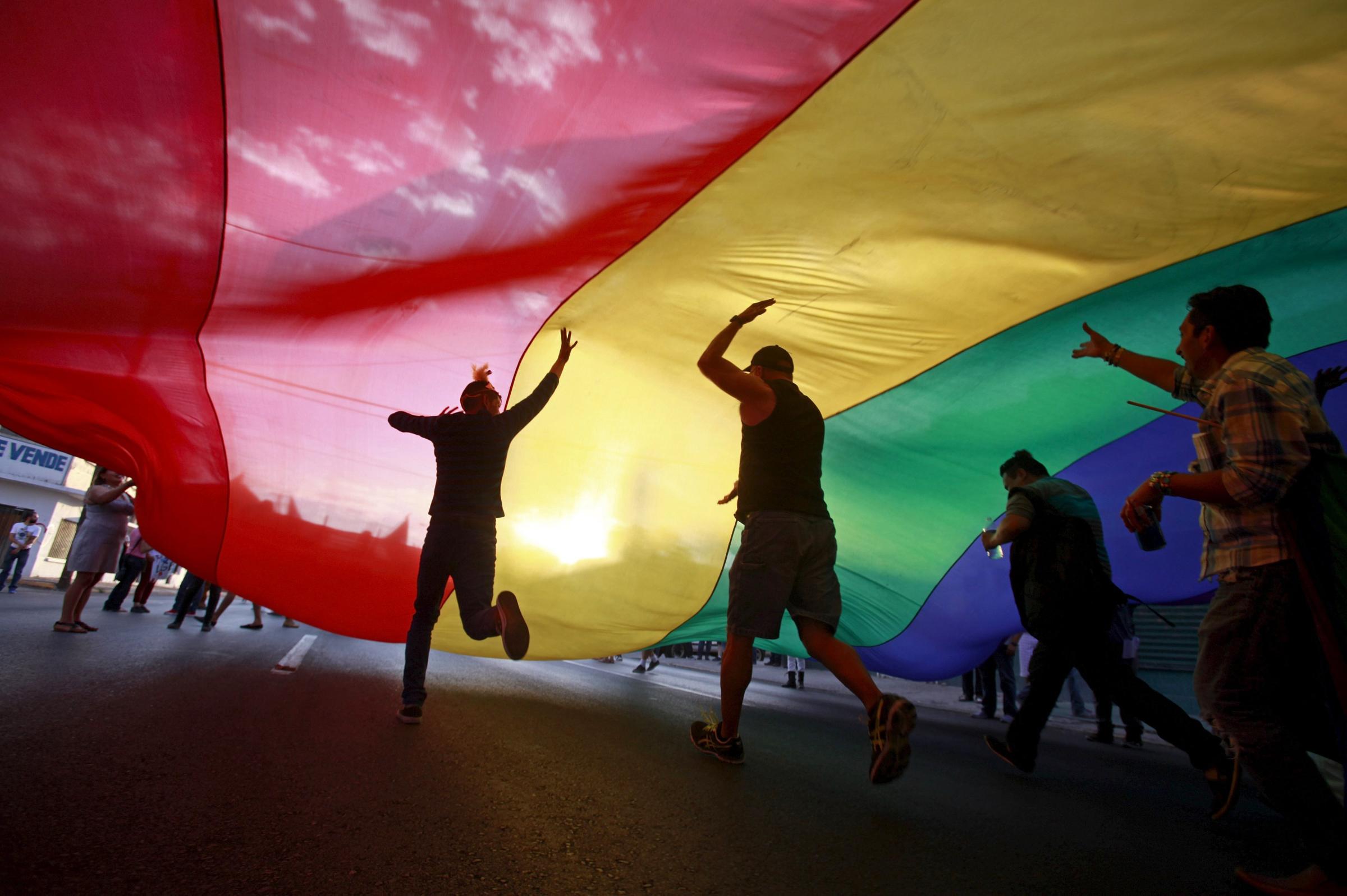
More Must-Reads from TIME
- Donald Trump Is TIME's 2024 Person of the Year
- Why We Chose Trump as Person of the Year
- Is Intermittent Fasting Good or Bad for You?
- The 100 Must-Read Books of 2024
- The 20 Best Christmas TV Episodes
- Column: If Optimism Feels Ridiculous Now, Try Hope
- The Future of Climate Action Is Trade Policy
- Merle Bombardieri Is Helping People Make the Baby Decision
Write to Olivia B. Waxman at olivia.waxman@time.com